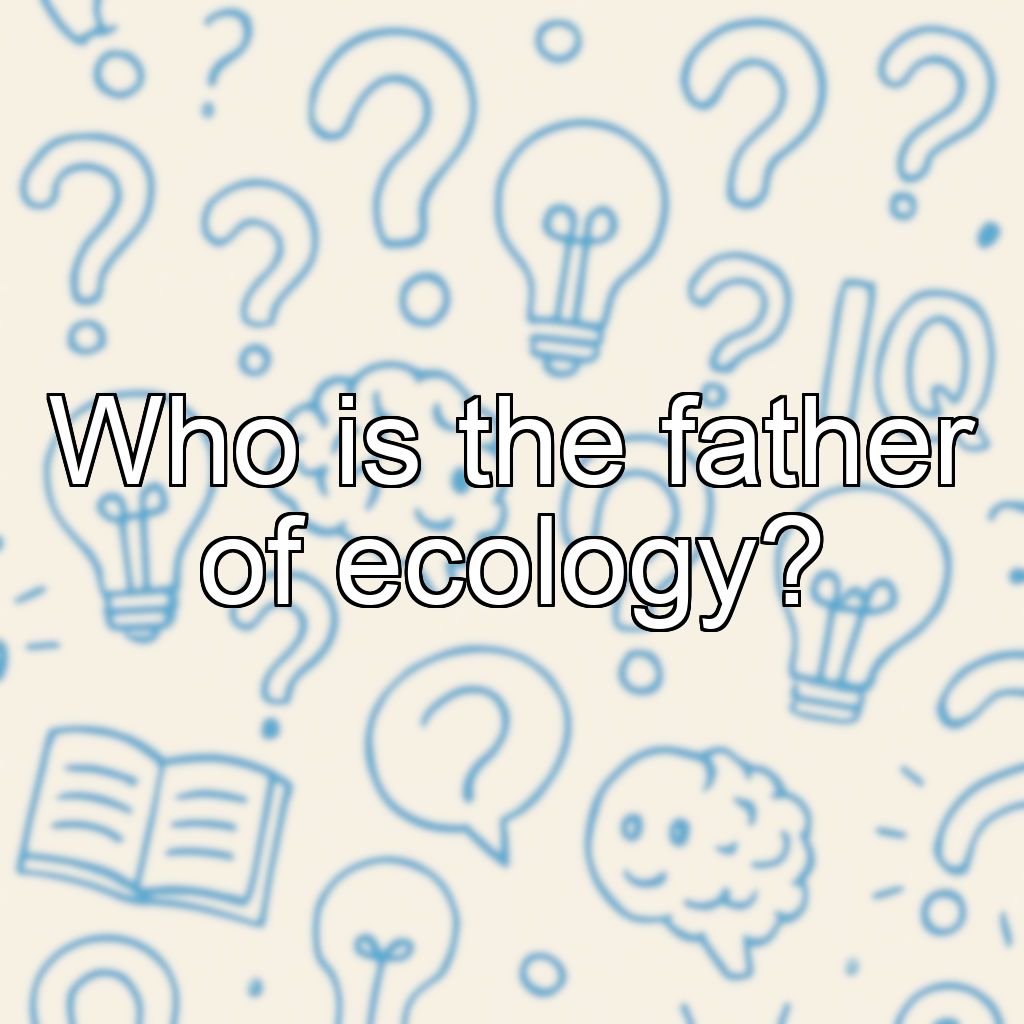Who is the father of ecology?

The Father of Ecology
Alexander von Humboldt is widely regarded as the "Father of Ecology." He was a German naturalist and explorer whose work laid the foundation for the modern study of ecosystems and the relationships between living organisms and their environments. Humboldt's research in the late 18th and early 19th centuries emphasized the interconnectedness of nature and introduced concepts that are central to ecology today.
In addition, some sources also credit Ernst Haeckel, a German biologist, for coining the term "ecology" (from the Greek "oikos" meaning "house" or "environment") and further developing the field in the 19th century. Both scientists made significant contributions, but Humboldt is most commonly known as the "Father of Ecology" due to his pioneering work.